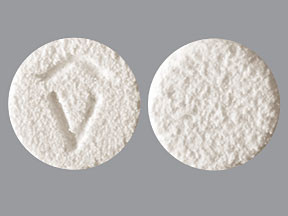LEVETIRACETAM TABLET - FOR ORAL SUSPENSION
PHONETIC PRONUNCIATION: (LEE-ve-tye-RA-se-tam)
COMMON BRAND NAME(S): Spritam
GENERIC NAME(S): levetiracetam
Uses
USES: Levetiracetam is used with other medications to treat seizures (epilepsy). It belongs to a class of drugs known as anticonvulsants. Levetiracetam may decrease the number of seizures you have.
How to use LEVETIRACETAM TABLET - FOR ORAL SUSPENSION
HOW TO USE: Read the Medication Guide provided by your pharmacist before you start taking levetiracetam and each time you get a refill. If you have any questions, ask your doctor or pharmacist. Take this medication by mouth with or without food as directed by your doctor, usually twice a day. Carefully remove the tablet(s) from the foil packet as directed by the product package. Do not push the tablet(s) through the foil. Dry your hands before handling the medication. Place each dose on the tongue and take a sip of liquid. Allow the medication to completely dissolve before swallowing it. Do not swallow the tablet(s) whole. The tablet(s) may also be placed in a cup with a small amount of liquid (1 tablespoon/15 milliliters). Swirl the mixture gently, then drink all of the mixture right away. To make sure you have taken all of the medication, add another small amount of liquid to the cup to rinse it, and drink it right away. The dosage is based on your medical condition and response to treatment. The dosage in children is also based on weight. To reduce your risk of side effects (such as dizziness and drowsiness), your doctor may direct you to start this medication at a low dose and gradually increase your dose. Follow your doctor's instructions carefully. Use this medication regularly to get the most benefit from it. To help you remember, take it at the same times each day. Do not increase your dose or use this drug more often or for longer than prescribed. Your condition will not improve any faster, and your risk of side effects will increase. Do not stop taking this medication without consulting your doctor. Your seizures may become worse when the drug is suddenly stopped. Your dose should be gradually decreased. Tell your doctor if your seizures lasts, change, or gets worse.
Side Effects
Precautions
Interactions
Overdose
Images
Reviews
Faq for LEVETIRACETAM TABLET - FOR ORAL SUSPENSION
LevETIRACETAM Tablet is used for the treatment of seizures in patients with epilepsy.
LevETIRACETAM Tablet works by decreasing abnormal activity in the brain, which helps to prevent seizures.
The recommended dosage of LevETIRACETAM Tablet may vary depending on the patient's age, weight, and the specific condition being treated. It is important to follow the instructions provided by your doctor or pharmacist.
LevETIRACETAM Tablet may interact with other medications, so it is important to inform your doctor about all the medications you are currently taking. They can determine if any adjustments need to be made to your treatment plan.
Common side effects of LevETIRACETAM Tablet may include dizziness, drowsiness, headache, and nausea. If you experience any severe or persistent side effects, it is important to seek medical attention.
It is important to discuss the risks and benefits of taking LevETIRACETAM Tablet during pregnancy or while breastfeeding with your doctor. They can provide guidance based on your specific situation.
If you miss a dose of LevETIRACETAM Tablet, take it as soon as you remember. However, if it is almost time for your next dose, skip the missed dose and continue with your regular dosing schedule. Do not take a double dose to make up for a missed one.
LevETIRACETAM Tablet should be swallowed whole with a full glass of water. Do not crush or chew the tablets unless specifically instructed by your doctor or pharmacist.
The effects of LevETIRACETAM Tablet may be noticeable within a few days of starting treatment. However, it may take several weeks for the full benefits to be experienced.
Disclaimer
IMPORTANT: HOW TO USE THIS INFORMATION: This is a summary and does NOT have all possible information about this product. This information does not assure that this product is safe, effective, or appropriate for you. This information is not individual medical advice and does not substitute for the advice of your health care professional. Always ask your health care professional for complete information about this product and your specific health needs.




No Reviews Yet